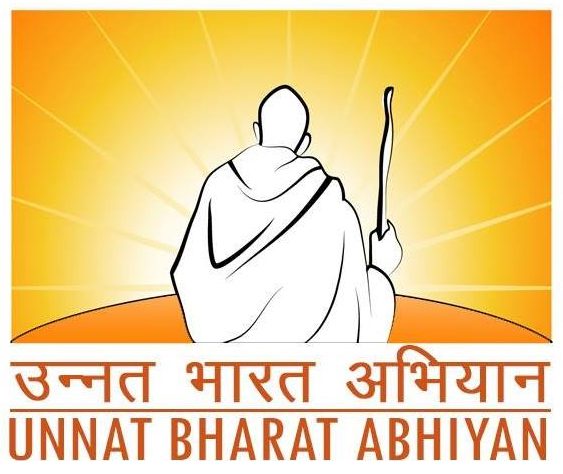Unnat Bharat Abhiyan
INTRODUCTION
The MHRD, GoI now MoE has launched a programme called Unnat Bharat Abhiyan with the aim of connecting the institute with local communities to address the development challenges through appropriate technologies. Further, AICTE Approval Process Handbook – 2022-23; APPENDIX-6: Norms for Essential and Desirable Requirements of the Technical Institutions; Clause: 6.2 Desirable Requirements of a Technical Institution; Point No. 19 Implementation of Unnat Bharat Abhiyan / Saansad Adarsh Gram Yojana (SAGY). The AICTE endeavours on supporting the institutions to get autonomy, accreditation ranking through Unnat Bharat Abhiyan and in reference to the Office Memorandum of UBA File No. 5-1/2016-UBA; MHRD; DHE; UBA Cell; Dt. 20.02.2018; Subject: Unnat Bharat Abhiyan Programme of Government of India establish a UBA Cell which will be responsible for carrying out the activities of UBA in that institution with the objectives of Unnat Bharat Abhiyan.
To involve the reputed higher educational institutions (technical / non-technical / public / private) of the country in the process of indigenous development of self-sufficient and sustainable village clusters
MISSION
In accordance with the above-mentioned vision, Unnat Bharat Abhiyan will strive to pursue the following:
- Develop the necessary mechanism and proper coordination among educational institutions, implementation agencies (District Administration / Panchayati Raj Intuitions) and the grass root level stakeholders to enable effective intervention at the field level.
- Select suitable rural clusters and effectively participate in the holistic development of these clusters using eco-friendly sustainable technologies and local resources creating sufficient employment opportunities in the process, harnessing multifarious government schemes, Customised use of existing technologies and use of knowledge as per the local needs, to improve the livelihood of the rural masses will be the key intervention.
- Reorienting the academic curricula and research programs in higher educational institutions to make them more in alignment with the local needs to bring in holistic development
OBJECTIVES
- To engage the faculty and students of Institute in understanding rural realities
- To identify & select existing innovative technologies, enable customization technologies, or devise implementation method for innovative solutions, as required by the people
- To allow institutes to contribute to devising systems for smooth implementation of various Govt. programs
GOALS
- To build an understanding of the development agenda within institutes of Higher Education and an institutional capacity and training relevant to national needs, especially those of rural India
- To re-emphasize the need for field work, stake-holder interactions and design for societal objectives as the basis of higher education
- To stress on rigorous reporting and useful outputs as central to developing new professions
- To provide rural India and regional agencies with access to the professional resources of the institutes of higher education, especially those that have acquired academic excellence in the field of science, engineering and technology, and management
- To improve development outcomes as a consequence of this research. To develop new professions and new processes to sustain and absorb the outcomes of research
- To foster a new dialogue within the larger community on science, society and the environment and to develop a sense of dignity and collective destiny.
PROGRAMME OFFICER’S
|
Sr.
|
Name
|
Designation
|
|
1
|
Mr. Mirza Beg
|
Dean (SWC)
|
|
2
|
Mr. Ankush Nizawan
|
Nodal Officer
|
|
3
|
Mr. Nishant Singh
|
Member
|
|
4
|
Mr. Jaswant Singh
|
Member
|





